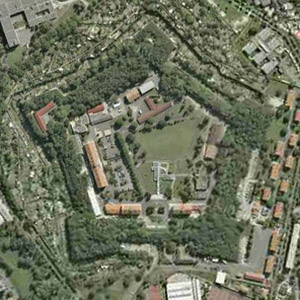by Brett Rutherford
Adapted from Victor Hugo, l'Annee Terrible,
"December 1870"
I am taken to view our dead where they lie
unburied as yet in the terrible and lonely field.
Their blood has made a horrible pool
on the earth around them,
and monstrous raptor birds
rip languidly into their open bellies.
The fierce, cold bodies of our warrior dead,
scattered upon the green meadow,
whom for fear of cannons we cannot touch;
they are black and frightful, and twisted in shapes
that the bodies of the young ought not to have.
The thunder of great guns has riven them,
blind gaping skulls like storm-struck stones.
Snow, taking soft pity, silhouettes them
with its secular white shroud.
The hands, oh! not praying! clench
lugubrious and harsh,
as though the sword held up against the enemy
were still in their grasp, as though they could fire
their one small bullet against the descending shell.
Anthemless, they have no words,
they are the lipless and eyeless dead.
On the stillness of their haggard sleep
nights pass in horror of the crows to come.
Their bodies have more shocks and sores
that those whom once the rack tormented.
Beneath them crawl the criminal worm,
the fetid larva, and the stinging ant.
Their corpses are already half subsumed in soil,
like a sinking ship tilted into deep water.
Their pale bones, covered in rot and shadow,
are like those to whom Ezekiel spoke.
We see everywhere on them the gaping holes
where cannonballs went through,
the saber-scars, the cruel jab-holes
where a spear went in and out.
The vast icy chill blows over this silence.
A windowless ruin whistles with wind,
dead strewn inside like a doll-house in hell.
O look, and look, and finally look away.
This cannot fade from the eye's under-lid.
Our dead, these boys and men,
naked and bloody under the rainy sky.
O dead for my country, I envy you only
that you did not live to see this.
Rather I were here, and you in your bed.

